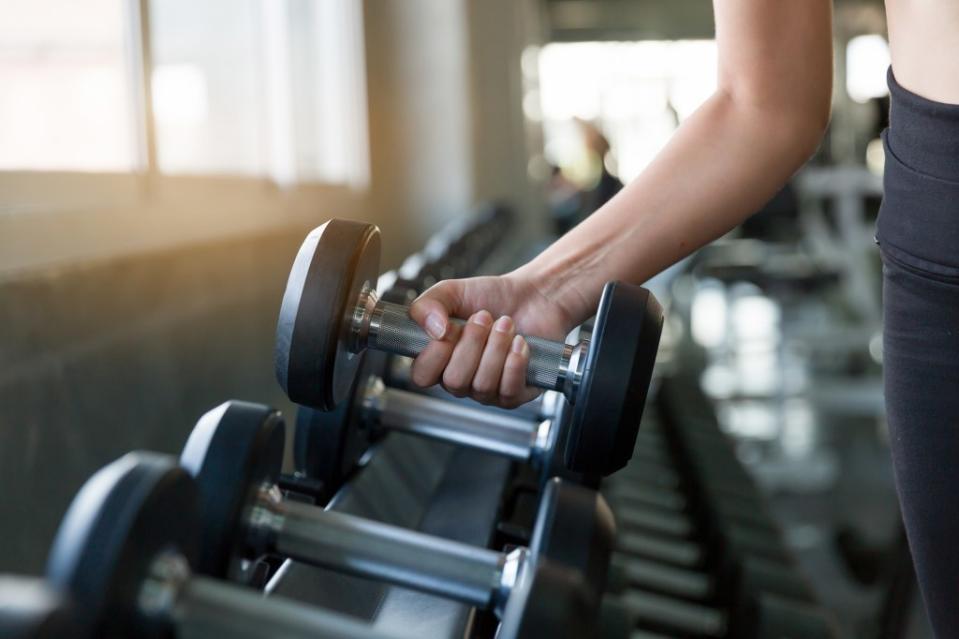Weight training strengthens more than muscles — it also pumps up the brain, study says

Pumping iron has some surprising health benefits.
A study, recently published in the British Journal of Sports Medicine, found that resistance training — such as weight training — strengthens muscles throughout the body, as well as the brain.
These types of exercises lower your risk for a wide range of medical disorders, including cardiovascular disease and diabetes, by improving the brain’s ability to access and process glucose.

Having unstable blood sugar for long durations of time can cause inflammation and insulin resistance, which hinder the brain cells from accessing the energy they need and can cause longterm damage.
However, the study found that a session of resistance training decreases blood glucose and insulin levels for up to 24 hours.
To help beginners get over the first hurdle, NYC-based fitness coach and personal trainer Claudette Sariya previously shared the six basic moves you need to conquer to begin weight training — none of which require picking up dumbbells.

“When it comes to working out, there are six basic movements,” Sariya told The Post.
She advises that everyone begin mastering squats, hinges, pushes, pulls, lunges and carries using only their body weight before reaching for the weights.
“Once you feel comfortable with those movements, then you can combine them into, more complex moves,” the trainer said.
Exercising could not only improve brain function but also increase brain volume, research suggests.

One study, published in the Journal of Alzheimer’s Disease, analyzed brain scans of more than 10,000 individuals, finding that regular exercise — even as little as taking a few thousand steps — could be associated with larger brain volume.
Brain volume is correlated with brain health — less volume indicates cognitive decline and, subsequently, could lead to dementia. An increase or maintenance in brain mass, then, could have “potential neuroprotective effects,” according to the team of researchers.
“We found that even moderate levels of physical activity, such as taking fewer than 4,000 steps a day, can have a positive effect on brain health,” study co-author Dr. David Merrill, the director of the Pacific Neuroscience Institute’s Brain Health Center, said in a statement.
Whether walking, running or playing sports, people who participated in moderate to vigorous activity — exercise that increases their pulse rate and respiration for a minimum of 10 minutes — had more brain mass in multiple regions, such as the hippocampus, which is responsible for memory; gray matter, which helps process information; and the occipital, frontal and parietal lobes.
The latest findings support the large body of research promoting the many mind and body benefits of exercise.
Solve the daily Crossword

